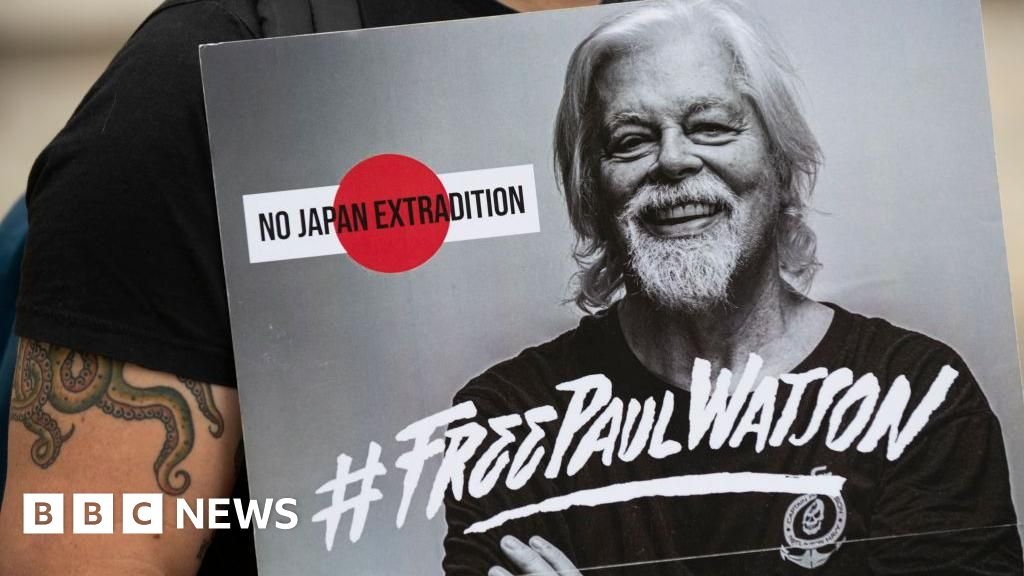 AFP
AFPAnti-whaling activist Paul Watson has been released from prison in Greenland, where he spent five months in custody, after Denmark rejected a Japanese extradition request.
Mr Watson, 74, was arrested by police when his ship docked in Greenland’s capital Nuuk last July.
Police had acted on the basis of a 2012 Japanese arrest warrant accusing him of causing damage to a Japanese whaling ship, obstructing business and injuring a crew member in a collision in Antarctic waters in February 2010.
Mr Watson, a Canadian-American citizen and star of the reality TV show Whale Wars, had denied any wrongdoing.
Whaling and the consumption of whale meat have been heavily criticized by conservation groups, but officials in Japan argue that it is part of the country’s culture and way of life.
The Danish Ministry of Justice confirmed that it would not comply with Japan’s extradition request, citing the “nature of the circumstances” and the fact that the incident occurred 14 years ago.
His lawyer Julie Stage told the AFP news agency that he was now free.
Since Greenland is an autonomous territory of Denmark, the decision to extradite him was made in Copenhagen. Although there is no extradition agreement between Japan and Denmark, the government in Tokyo had asked Denmark to extradite him.
Denmark’s Justice Minister Peter Hummelgaard said it was of “central importance” to ensure that the period of Mr Watson’s detention in Greenland counted towards any possible prison sentence he later faced in Japan.
He added that after correspondence with Japanese authorities, the ministry concluded that “it cannot be assumed with reasonable certainty that this will be the case.”
Mr. Watson’s ship, the M/Y John Paul DeJoria, was headed to the North Pacific with a crew of 26 volunteers on board to intercept a new Japanese whaling ship when it stopped to refuel in Nuuk on July 21.
At an earlier detention hearing, Mr Watson told the court that the case was “about revenge for a television program that has caused extreme embarrassment to Japan in the eyes of the world”.
For years he has been a controversial figure, known for confrontations with whaling ships at sea.
The activist is the former head of the Sea Shepherd Conservation Society, which he left in 2022 to create the Captain Paul Watson Foundation.
Japan withdrew from the International Whaling Commission and resumed commercial whaling in 2019 after a 30-year hiatus. However, whaling continued ostensibly for research purposes.






